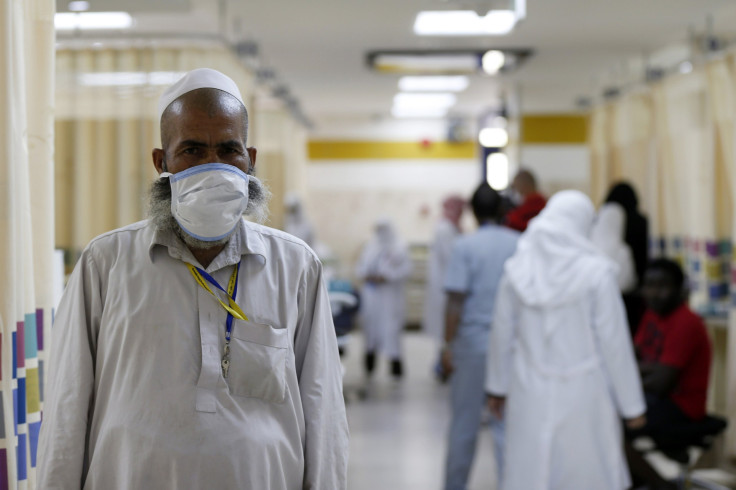Saudi Arabia Detects Six New MERS Cases In 24 Hours In Biggest Jump In Months

Saudi Arabia said late Wednesday that the country’s health care system has detected six new cases of the Middle East Respiratory Syndrome coronavirus, or MERS, in 24 hours. The latest figure comes as the biggest jump for the deadly virus in months.
Officials blamed lax hospital procedures for the spread of the virus, which has affected 32 people this month. The sudden spread of the virus has mostly been noted in the capital city of Riyadh and the western city of Taif, about 500 miles away. The country had seen another deadly outbreak of the virus in April and May, which affected hundreds of people. The virus has so far mostly affected Saudi Arabia, which has recorded 786 cases of whom 334 have died, Reuters reported.
"The secret here of success is not to prevent the cases to be introduced to the community... the success is to control the transmission within health facilities," Abdulaziz bin Saeed, undersecretary for public health, said, according to Reuters.
Three hospitals in Taif have been affected while two of the newer cases were seen in medical personnel, raising concerns about the level of protection being followed at medical facilities. Some of the affected people are being treated at a renal clinic in Taif, which has allegedly been responsible for some of the transmissions, a senior health ministry official said, according to Reuters.
According to studies conducted by scientists, the origin of the disease has been linked to camels and is suspected of being transmitted to humans by close physical contact with the animals, or by consuming camel meat or milk.
"The available evidence indicates that camels transmit MERS-CoV to humans, who then infect each other through direct contact with droplets that contain the virus," Anees Sindi, deputy chief of the country’s Command and Control Center, said, according to Arab News, a local news agency.
MERS, which was identified in 2012, leads to heavy coughing, fever and sometimes pneumonia, and has a death rate of about 40 percent. The virus has affected people in the U.S., Europe, the Middle East and Asia in the past, but has been found mostly in people who had traveled to Saudi Arabia, Reuters reported.
Meanwhile, two people who returned to Jakarta, Indonesia, from the religious pilgrimage of Hajj have reportedly contracted the MERS virus and are being treated in hospitals in the city, Jakarta Post, a local newspaper, reported. Health officials said that the married couple is undergoing intensive treatment, while doctors await further lab tests from a local health care agency in Jambi province, about 544 miles north of Jakarta.
© Copyright IBTimes 2025. All rights reserved.





















